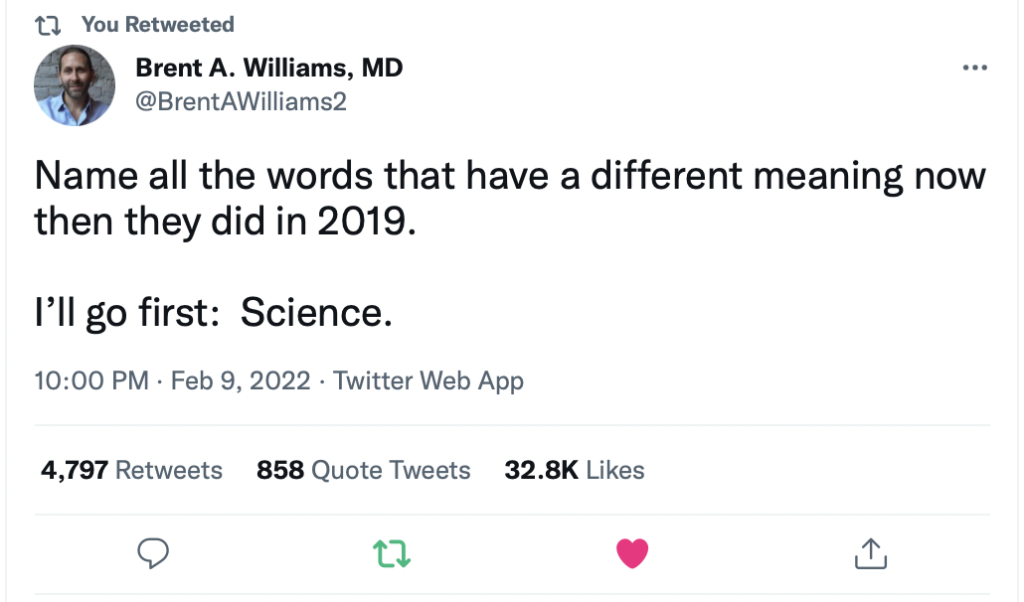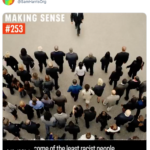Tara Henley Describes the Identitarian Left
Who are these people? Here's one tell: You will not find them on the streets actually helping to improve the people they claim they care about. You will not find them in the kinds of colleges that most people attend. You won't find them inviting open-ended discussions with the people they disagree with.
Tara Henley tells us more about the Identitarian Left, whether you call them this or whether you call them Woke Moralists or Social Justice Warriors or whatever:
One term I’ve heard lately that’s helpful in unpacking the new left is “identitarian moralism.” This phrase captures the new left’s puritanical thrust and quasi-religious fervour, along with its festishization of identity, while also signaling its ability to shape-shift to take up the Twitter cause du jour, whether that happens to be pandemic public health policies or, this week, recasting Madeleine Albright as some sort of feminist icon. What remains consistent, across all fronts, is a strident illiberalism.Who is Tara Henley? Someone who lives by her principles. A former decorated reporter with the Canadian Broadcasting Corporation. Here is why she resigned at the end of December 2021:Let’s be clear: If you do not agree with the new left’s list of approved narratives, it one hundred percent expects you to keep your mouth shut (or, alternatively, to “do the work” of “listening and learning,” ideally on Instagram, so that you can be shunned and shamed in as public a manner as possible).
The goal of the new left is, in fact, explicitly to shut down debate of any ideas deemed “harmful,” so as not to perpetuate the harm. This unfortunately leads to an endless parade of bad faith arguments, since the goal is never to make sense or persuade people, but rather to bring discussions to an abrupt halt.
It also leaves a great number of people politically homeless.
It used to be that I was the one furthest to the left in any newsroom, occasionally causing strain in story meetings with my views on issues like the housing crisis. I am now easily the most conservative, frequently sparking tension by questioning identity politics. This happened in the span of about 18 months. My own politics did not change.
To work at the CBC in the current climate is to embrace cognitive dissonance and to abandon journalistic integrity.
It is to sign on, enthusiastically, to a radical political agenda that originated on Ivy League campuses in the United States and spread through American social media platforms that monetize outrage and stoke societal divisions. It is to pretend that the “woke” worldview is near universal — even if it is far from popular with those you know, and speak to, and interview, and read.
To work at the CBC now is to accept the idea that race is the most significant thing about a person, and that some races are more relevant to the public conversation than others. It is, in my newsroom, to fill out racial profile forms for every guest you book; to actively book more people of some races and less of others.
To work at the CBC is to submit to job interviews that are not about qualifications or experience — but instead demand the parroting of orthodoxies, the demonstration of fealty to dogma.



